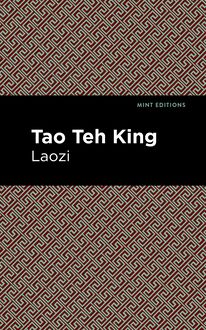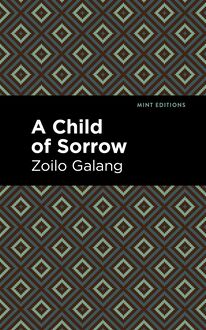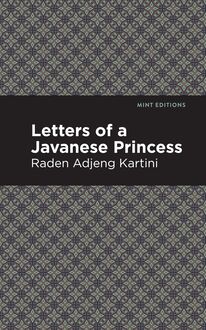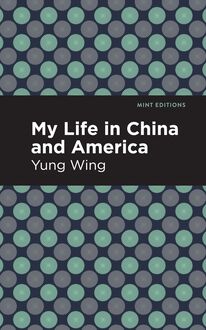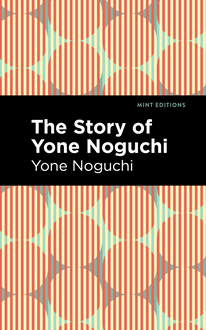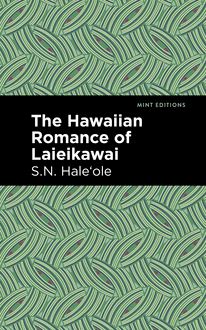-
 Univers
Univers
-
 Ebooks
Ebooks
-
 Livres audio
Livres audio
-
 Presse
Presse
-
 Podcasts
Podcasts
-
 BD
BD
-
 Documents
Documents
-
- Cours
- Révisions
- Ressources pédagogiques
- Sciences de l’éducation
- Manuels scolaires
- Langues
- Travaux de classe
- Annales de BEP
- Etudes supérieures
- Maternelle et primaire
- Fiches de lecture
- Orientation scolaire
- Méthodologie
- Corrigés de devoir
- Annales d’examens et concours
- Annales du bac
- Annales du brevet
- Rapports de stage
La lecture à portée de main
Vous pourrez modifier la taille du texte de cet ouvrage
Découvre YouScribe en t'inscrivant gratuitement
Je m'inscrisDécouvre YouScribe en t'inscrivant gratuitement
Je m'inscrisEn savoir plus
Vous pourrez modifier la taille du texte de cet ouvrage
En savoir plus

Description
The Tao Te Ching is one of the world’s oldest and most influential documents. Its view of the mind and its place in the world, paradoxically simple and profound, continue to perplex, excite and inspire today.
The Tao Te Ching, also known as The Tao and its Characteristics or The Book of Tao, has traditionally been attributed to Lao Tzu, a Chinese philosopher of the 6th century BC. The ancient book’s exact origins and authorship are still subject to debate, including some wondering if it was written by a single author or is the accumulated wisdom of many. The text seeks a peeling away of artificial constraints of society and the mind in order to return to the natural balance of the Tao, the essence of all things. This is described as ‘the way’, an immersion in the present moment and a freedom from desire that liberates the self from purely selfish motivations, creating a balanced state of humble simplicity and peace of mind. Poetic and shot through with thought provoking paradox, the text invites absorption, consideration and interpretation. Ceaselessly influential across cultures and centuries, The Tao Te Ching has, at one time or another, impacted religious thought, political theory, philosophy and an array of artists working in everything from poetry to painting to music. Thousands of years old, the text and its message are truly timeless.
With an eye-catching new cover, and professionally typeset manuscript, this edition of The Tao Te Ching is both modern and readable.
Sujets
Informations
| Publié par | Mint Editions |
| Date de parution | 01 décembre 2020 |
| Nombre de lectures | 1 |
| EAN13 | 9781513265254 |
| Langue | English |
| Poids de l'ouvrage | 2 Mo |
Informations légales : prix de location à la page 0,0250€. Cette information est donnée uniquement à titre indicatif conformément à la législation en vigueur.
Extrait
Tao Teh King
The Tao and Its Characteristics
Laozi
Tao Teh King: The Tao and Its Characteristics was first published in 1898.
This edition published by Mint Editions 2020.
ISBN 9781513264578 | E-ISBN 9781513265254
Published by Mint Editions®
minteditionbooks.com
Publishing Director: Jennifer Newens
Project Manager: Gabrielle Maudiere
Design & Production: Rachel Lopez Metzger
Translation: James Legge
Typesetting: Westchester Publishing Services
Contents Part 1 Chapter 1 Chapter 2 Chapter 3 Chapter 4 Chapter 5 Chapter 6 Chapter 7 Chapter 8 Chapter 9 Chapter 10 Chapter 11 Chapter 12 Chapter 13 Chapter 14 Chapter 15 Chapter 16 Chapter 17 Chapter 18 Chapter 19 Chapter 20 Chapter 21 Chapter 22 Chapter 23 Chapter 24 Chapter 25 Chapter 26 Chapter 27 Chapter 28 Chapter 29 Chapter 30 Chapter 31 Chapter 32 Chapter 33 Chapter 34 Chapter 35 Chapter 36 Chapter 37 Part II Chapter 38 Chapter 39 Chapter 40 Chapter 41 Chapter 42 Chapter 43 Chapter 44 Chapter 45 Chapter 46 Chapter 47 Chapter 48 Chapter 49 Chapter 50 Chapter 51 Chapter 52 Chapter 53 Chapter 54 Chapter 55 Chapter 56 Chapter 57 Chapter 58 Chapter 59 Chapter 60 Chapter 61 Chapter 62 Chapter 63 Chapter 64 Chapter 65 Chapter 66 Chapter 67 Chapter 68 Chapter 69 Chapter 70 Chapter 71 Chapter 72 Chapter 73 Chapter 74 Chapter 75 Chapter 76 Chapter 77 Chapter 78 Chapter 79 Chapter 80 Chapter 81
PART 1
1
1. The Tao that can be trodden is not the enduring and unchanging Tao. The name that can be named is not the enduring and unchanging name.
2. (Conceived of as) having no name, it is the Originator of heaven and earth; (conceived of as) having a name, it is the Mother of all things.
Always without desire we must be found,
If its deep mystery we would sound;
But if desire always within us be,
Its outer fringe is all that we shall see.
3. Under these two aspects, it is really the same; but as development takes place, it receives the different names. Together we call them the Mystery. Where the Mystery is the deepest is the gate of all that is subtle and wonderful.
2
1. All in the world know the beauty of the beautiful, and in doing this they have (the idea of) what ugliness is; they all know the skill of the skilful, and in doing this they have (the idea of) what the want of skill is.
2. So it is that existence and non-existence give birth the one to (the idea of) the other; that difficulty and ease produce the one (the idea of) the other; that length and shortness fashion out the one the figure of the other; that (the ideas of) height and lowness arise from the contrast of the one with the other; that the musical notes and tones become harmonious through the relation of one with another; and that being before and behind give the idea of one following another.
3. Therefore the sage manages affairs without doing anything, and conveys his instructions without the use of speech.
4. All things spring up, and there is not one which declines to show itself; they grow, and there is no claim made for their ownership; they go through their processes, and there is no expectation (of a reward for the results). The work is accomplished, and there is no resting in it (as an achievement).
The work is done, but how no one can see;
’Tis this that makes the power not cease to be.
3
1. Not to value and employ men of superior ability is the way to keep the people from rivalry among themselves; not to prize articles which are difficult to procure is the way to keep them from becoming thieves; not to show them what is likely to excite their desires is the way to keep their minds from disorder.
2. Therefore the sage, in the exercise of his government, empties their minds, fills their bellies, weakens their wills, and strengthens their bones.
3. He constantly (tries to) keep them without knowledge and without desire, and where there are those who have knowledge, to keep them from presuming to act (on it). When there is this abstinence from action, good order is universal.
4
1. The Tao is (like) the emptiness of a vessel; and in our employment of it we must be on our guard against all fulness. How deep and unfathomable it is, as if it were the Honoured Ancestor of all things!
2. We should blunt our sharp points, and unravel the complications of things; we should attemper our brightness, and bring ourselves into agreement with the obscurity of others. How pure and still the Tao is, as if it would ever so continue!
3. I do not know whose son it is. It might appear to have been before God.
5
1. Heaven and earth do not act from (the impulse of) any wish to be benevolent; they deal with all things as the dogs of grass are dealt with. The sages do not act from (any wish to be) benevolent; they deal with the people as the dogs of grass are dealt with.
2. May not the space between heaven and earth be compared to a bellows?
’Tis emptied, yet it loses not its power;
’Tis moved again, and sends forth air the more.
Much speech to swift exhaustion lead we see;
Your inner being guard, and keep it free.
6
The valley spirit dies not, aye the same;
The female mystery thus do we name.
Its gate, from which at first they issued forth,
Is called the root from which grew heaven and earth.
Long and unbroken does its power remain,
Used gently, and without the touch of pain.
7
1. Heaven is long-enduring and earth continues long. The reason why heaven and earth are able to endure and continue thus long is because they do not live of, or for, themselves. This is how they are able to continue and endure.
2. Therefore the sage puts his own person last, and yet it is found in the foremost place; he treats his person as if it were foreign to him, and yet that person is preserved. Is it not because he has no personal and private ends, that therefore such ends are realised?
-
 Univers
Univers
-
 Ebooks
Ebooks
-
 Livres audio
Livres audio
-
 Presse
Presse
-
 Podcasts
Podcasts
-
 BD
BD
-
 Documents
Documents
-
Jeunesse
-
Littérature
-
Ressources professionnelles
-
Santé et bien-être
-
Savoirs
-
Education
-
Loisirs et hobbies
-
Art, musique et cinéma
-
Actualité et débat de société
-
Jeunesse
-
Littérature
-
Ressources professionnelles
-
Santé et bien-être
-
Savoirs
-
Education
-
Loisirs et hobbies
-
Art, musique et cinéma
-
Actualité et débat de société
-
Actualités
-
Lifestyle
-
Presse jeunesse
-
Presse professionnelle
-
Pratique
-
Presse sportive
-
Presse internationale
-
Culture & Médias
-
Action et Aventures
-
Science-fiction et Fantasy
-
Société
-
Jeunesse
-
Littérature
-
Ressources professionnelles
-
Santé et bien-être
-
Savoirs
-
Education
-
Loisirs et hobbies
-
Art, musique et cinéma
-
Actualité et débat de société
- Cours
- Révisions
- Ressources pédagogiques
- Sciences de l’éducation
- Manuels scolaires
- Langues
- Travaux de classe
- Annales de BEP
- Etudes supérieures
- Maternelle et primaire
- Fiches de lecture
- Orientation scolaire
- Méthodologie
- Corrigés de devoir
- Annales d’examens et concours
- Annales du bac
- Annales du brevet
- Rapports de stage

